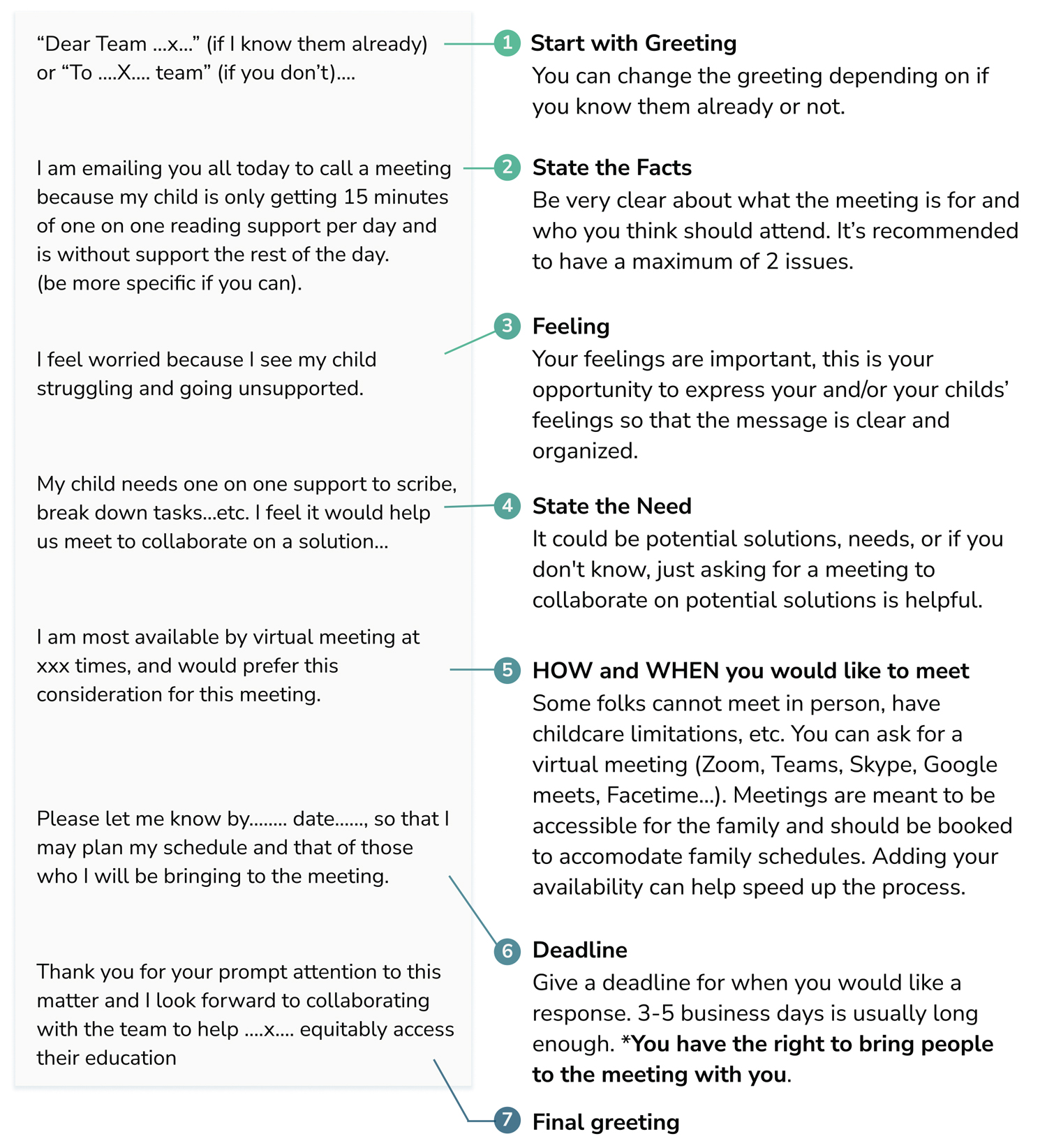School Meeting Toolkit 1:
How to Write an Email to Call a Meeting
A school meeting can be requested either by you or the school to address/discuss a concern. Sometimes issues/concerns can be settled by email communication but sometimes a meeting is necessary.
Tips for follow-up communications
1. If you have not heard back after the deadline, you can email again with a shorter deadline, 1-2 days maximum, or you can email up the chain of command.
2. If still no response, email up the chain of command with a new deadline.
*Depending on the stage you are in your advocacy, addressing the correct people is important.
As we go higher in our advocacy, we may need to bring in more people into the communications, but at the beginning, keeping it to the teacher, principal and/or learning support person is sufficient.
You may not know the name or email of all that you need to address: you can find a lot of this on the district website.
Tips for writing emails when we are emotionally charged
It can be useful to write out a draft email with all the details, but don’t send it! Take some time to reflect and come back later. It can be hard to write an email that isn’t too angry and isn’t too friendly, so be brief and factual in your final draft.
Getting another person to read your communication can help spot points we may have missed. It is important to say how your child and you are feeling.
A trick to use when writing an advocacy letter, is to imagine your letters being read by the courts, so write based on fact as we know it.


By Family Support Institute of BC & BCEdAccess




